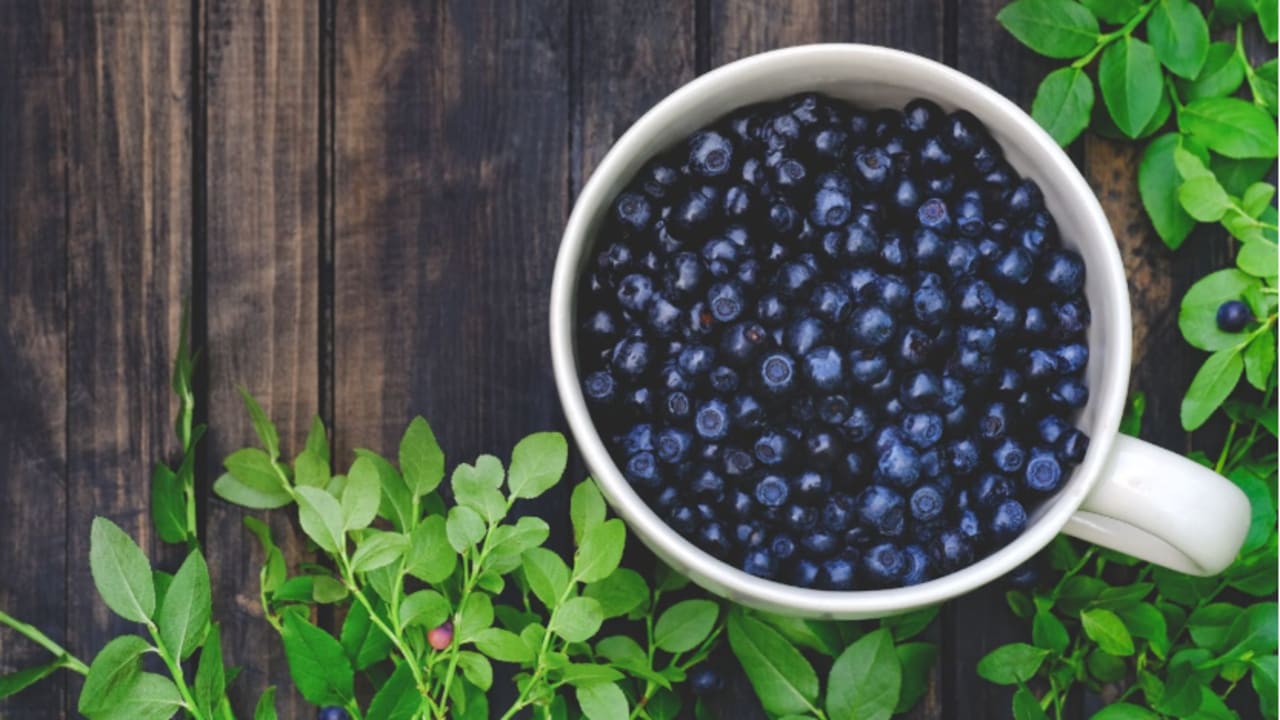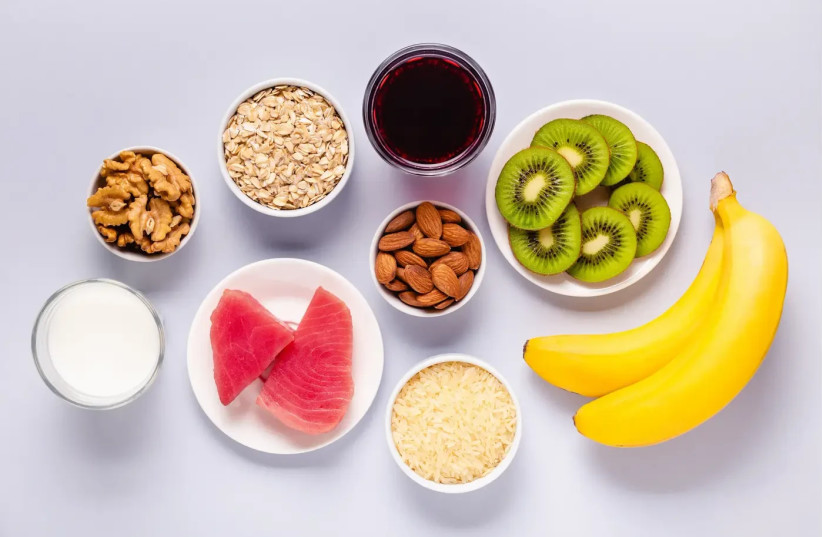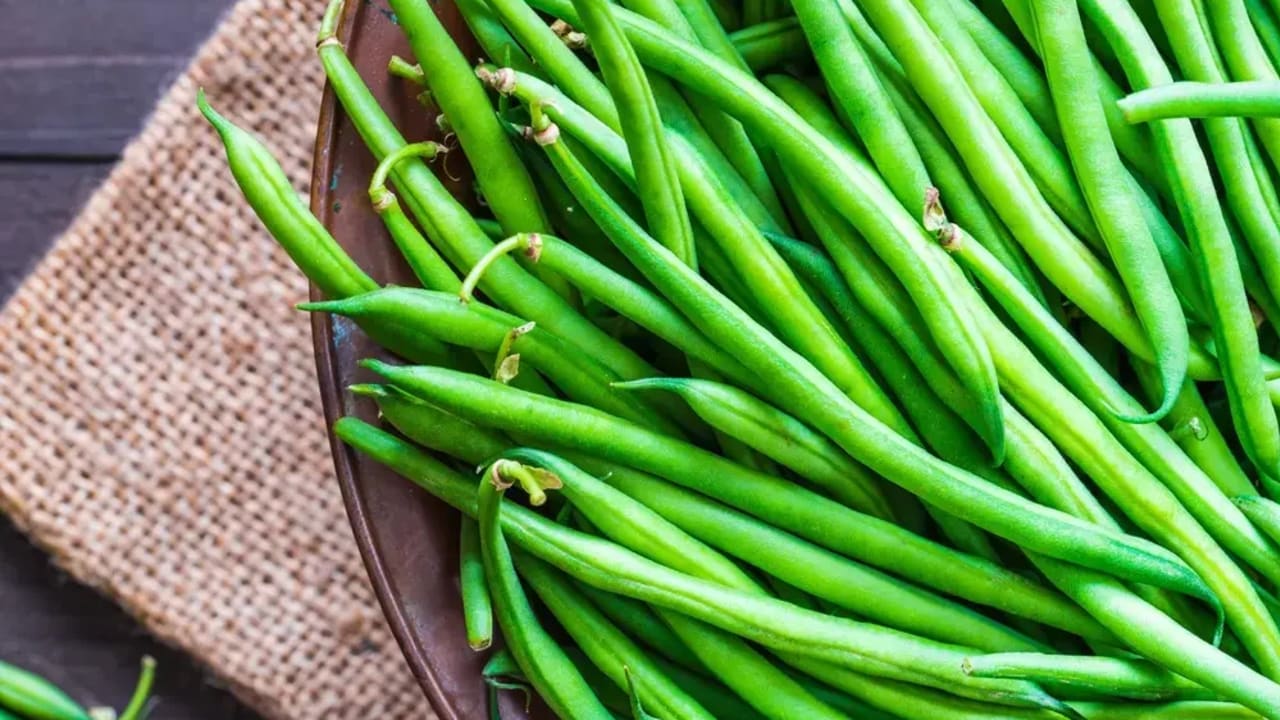ByJERUSALEM POST STAFF
Study of over 120,000 participants found high flavonoid intake associated with lower mortality and chronic disease rates.
Recent studies have shown the health benefits of a flavonoid-rich diet, linking it to enhanced longevity and a reduced risk of chronic diseases. In 2024, the journal American Journal of Clinical Nutrition published a study finding that consuming foods high in flavonoids can help reduce the risk of non-alcoholic fatty liver disease (NAFLD) and decrease fat and inflammation in the liver. Similarly, a study published in 2024 in the journal JAMA Network Open found that those who consumed the most flavonoids had a 28% lower risk of dementia compared to those who consumed the least.
Flavonoids are natural plant compounds found in teas, berries, apples, dark chocolate, and plant-based foods. Foods rich in flavonoids include berries such as blueberries and raspberries, citrus fruits like oranges and grapefruits, dark chocolate, fruits such as peaches and bananas, green and black tea, leafy green vegetables like kale and spinach, red wine, and vegetables such as peas, onions, and tomatoes.
Researchers analyzed data from over 120,000 participants and found that those who consumed a large quantity or a variety of flavonoids had lower mortality rates and lower rates of chronic diseases compared to those who consumed fewer flavonoids. The study from Edith Cowan University in Australia analyzed the health and diet of more than 100,000 people over a decade.
According to the research, increasing both the quantity and variety of flavonoids together has an even greater positive effect on overall long-term health. A wider mix of flavonoids in the diet may be beneficial for health and support healthy aging. "We have known for some time that higher intakes of dietary flavonoids, powerful bioactives naturally present in many foods and drinks, can reduce the risk of developing heart disease, type 2 diabetes, and neurological conditions like Parkinson's," said nutritional scientist Aedín Cassidy from Queen's University Belfast in Northern Ireland.
Among participants consuming the same types of flavonoids, those who consumed a greater quantity had a 16% lower mortality rate, a 9% lower risk of heart disease, a 12% lower risk of diabetes, and a 13% lower risk of respiratory diseases compared to those who consumed less. Furthermore, among participants consuming the same quantity of flavonoids, those who ate the most diverse types of flavonoids had a 14% lower mortality rate, a 10% lower risk of heart disease, a 20% lower risk of diabetes, an 8% lower risk of cancer, and an 8% lower risk of respiratory diseases compared to those who ate the fewest types.
Flavonoids have antioxidant and anti-inflammatory properties that help protect the body's cells from damage. "(Flavonoids) are substances that give many plants bright colors, but they also seem to have health-enhancing properties," explained Dr. Nicola Bondonno, PhD, a researcher from the Danish Cancer Society.
Regular consumption of foods rich in flavonoids is associated with a decrease in the risk of physical frailty and cognitive decline among older adults, according to research published in The American Journal of Clinical Nutrition. Individuals following a diet rich in flavonoids have a 15% lower risk of developing frailty and a 12% reduced risk of suffering cognitive disorders. These results support the idea that a diet rich in flavonoids may help elderly women maintain mobility, muscle strength, and functional independence.
Flavonoids have been associated with reduced risk of cardiovascular disease and protection against heart diseases. Flavanols from cocoa, a subtype of flavonoids present in high concentrations in dark chocolate with a minimum of 70% cocoa, have been associated with better functioning of the endothelium, the tissue that lines the interior of blood vessels. Regular consumption of dark chocolate helps reduce the risk of chronic diseases and has been associated with measurable decreases in blood pressure and reduced risk of cardiovascular diseases, especially among individuals with pre-existing risk factors.
Berries are among the richest food sources of antioxidants, especially flavonoids from the anthocyanin category, compounds responsible for their intense color. Regular consumption of berries helps protect memory and has been associated with a slowing of cognitive decline and improvement of motor functions, especially among older adults.
Tea, both green and black, is another source of flavonoids. Black and green teas were the most common sources of flavonoids in the study, consumed by two-thirds of the participants. "That's roughly the amount of flavonoids that you would consume in two cups of tea," said Benjamin Parmenter.
"Eating fruits and vegetables in a variety of colors, including those rich in flavonoids, means you're more likely to get the vitamins and nutrients you need to sustain a healthier lifestyle," said nutrition scientist Tilman Kuhn from the Medical University of Vienna in Austria.
The researchers are recommending a mix of flavonoid-rich food and drink every day. Simply adding flavonoid-rich foods such as tea, apples, or berries to daily meals can help people live longer and reduce the risk of death from chronic diseases. Monique Richard, a registered dietitian, proposes an example of a daily structure in which sources of flavonoids, beneficial fats, fibers, and antioxidants are included.
For breakfast, Richard suggests a cup of green tea or a smoothie made with frozen berries and kefir. Berries can be consumed fresh or frozen, without losses of nutritional value. Frozen berries offer the advantage of consistent quality and can be easily included in daily meals, in smoothies, yogurt, cereals, or even in cooked dishes, without unnecessary additions of sugar or fats.
For lunch, she recommends a lean protein, such as turkey breast or tofu, served with a salad of kale, sliced apple, nuts, aged cheese, and a dressing of extra virgin olive oil, balsamic vinegar, garlic, and dill, which includes fibers and flavonoids from plant sources.
For dinner, Richard suggests approximately 115 grams of fatty fish—salmon, sardines, or trout—along with baked sweet potatoes, brown rice, and a salsa of fresh strawberries.
For snacks, she recommends roasted chickpeas without hydrogenated oils or pudding made from chia seeds hydrated with plant milk and fruits, both of which provide fibers, proteins, and omega-3 fatty acids of plant origin.
Richard recommends maintaining dietary diversity to cover differences in absorption and efficiency between individuals and types of bioactive compounds. "Each food has its own properties for the body, and the key is knowing how to combine them appropriately to generate the expected effect," she said.



















